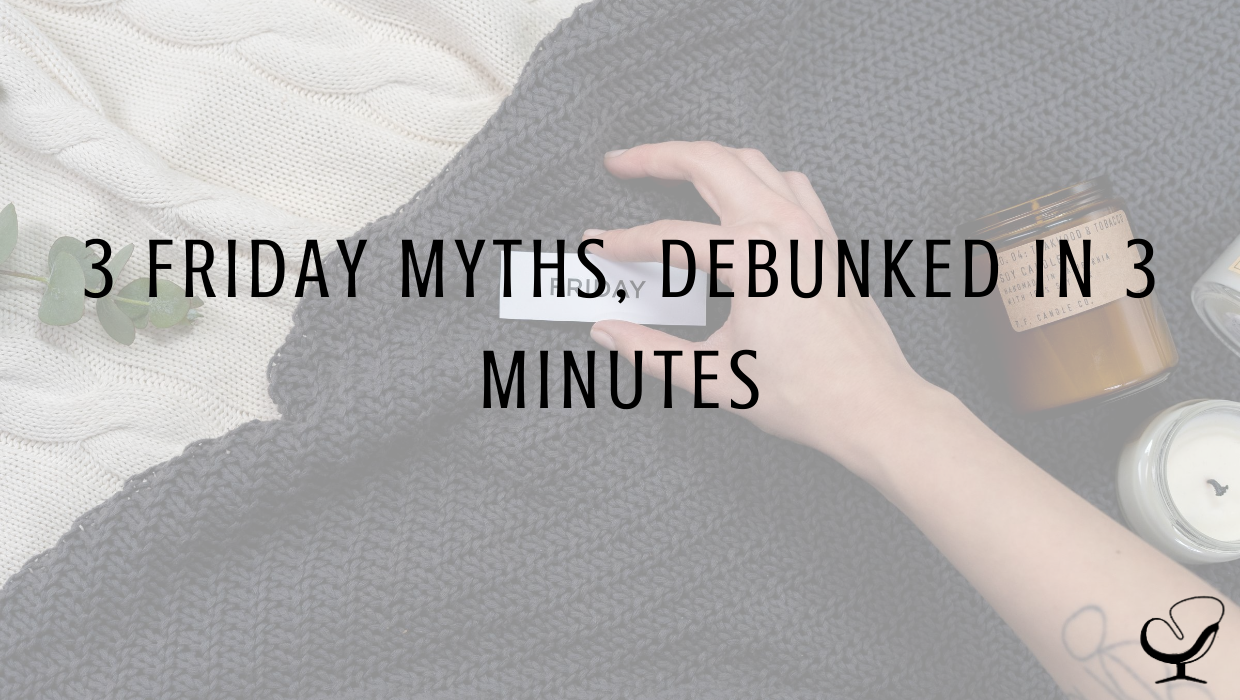I’m going to get down to it right away, there are some myths about Friday that we have to undo. To save you time, here are the three Friday myths that I’m going to debunk:
- Working on Friday is essential
- A 40-hour work week is the most productive
- Having a light day on Friday is good for the workforce
Friday Truth #1: Working on Friday is not essential
Sure there are plenty of jobs that need to work on Friday. Just like we want ambulances to be available 24/7 there are loads of jobs that aren’t going to stop because of a day of the week. But, in most jobs, working on Friday is not essential. In fact, it is bad for morale, creativity, and engagement. Say the average person works at 70% of their true capacity. In a five day work week, that means that 40 hours is actually 28 hours of real work. The rest of the time is spent daydreaming, moving between tasks, or in unnecessary meetings. Say we reduce the workweek to 32 hours, to have 28 hours of productive work, we need to be at 87.5% productivity.
Friday Truth #2: A 40-hour workweek is not the most productive
The German company Siemens is huge, with over 380k employees. Their incoming CEO, Roland Busch, just said this:
“The basis for this forward-looking working model is further development [of] our corporate culture. These changes will also be associated with a different leadership style, one that focuses on outcomes rather than on time spent at the office. We trust our employees and empower them to shape their work themselves so that they can achieve the best possible results. With the new way of working, we’re motivating our employees while improving the company’s performance capabilities and sharpening Siemens’ profile as a flexible and attractive employer.”
In other words, in the world of COVID-19, things are rapidly changing. People in the seat should not be the KPI. Instead, projects completed and total value should be a measure. The truth about the forty-hour week is that Henry Ford pushed for it, so it happened. Before that, people worked six or seven days a week.
Truth #3: Light days at work reduce staff morale.
There’s this notion that Fridays at work should be light, easy, and sort of a dead day. If you’re forced to work on a Friday and your boss is ok with it being light, why the heck wouldn’t you do that. But, if you knew that you could have Friday off if you got your work done in four days, wouldn’t you take it? Light days on Friday actually hurt staff. They feel less productive, more than their time is owned by the company, and that time in the seat trumps outcomes. Why would they seek efficiency and productivity if they still have to sit in the office? I once worked at an agency that tracked productivity. I figured out how to game it and my productivity was almost always over 100% by focusing on what mattered. It was asinine.
Businesses that succeed in a post-COVID world will move away from a five-day workweek. Further, three day weekends allow for more time for staff to get errands done, relax, rejuvenate, and come back ready to work.
Joe Sanok is the author of Thursday is The New Friday (HarperCollins) releasing October 2021.
Joseph R. Sanok, MA, LLP, LPC, NCC
 Joe Sanok is an ambitious results expert. He is a private practice business consultant and counselor that helps small businesses and counselors in private practice to increase revenue and have more fun! He helps owners with website design, vision, growth, and using their time to create income through being a private practice consultant. Joe was frustrated with his lack of business and marketing skills when he left graduate school. He loved helping people through counseling but felt that often people couldn’t find him. Over the past few years, he has grown his skills, income, and ability to lead others, while still maintaining an active private practice in Traverse City, MI. To link to Joe’s Google+
Joe Sanok is an ambitious results expert. He is a private practice business consultant and counselor that helps small businesses and counselors in private practice to increase revenue and have more fun! He helps owners with website design, vision, growth, and using their time to create income through being a private practice consultant. Joe was frustrated with his lack of business and marketing skills when he left graduate school. He loved helping people through counseling but felt that often people couldn’t find him. Over the past few years, he has grown his skills, income, and ability to lead others, while still maintaining an active private practice in Traverse City, MI. To link to Joe’s Google+

